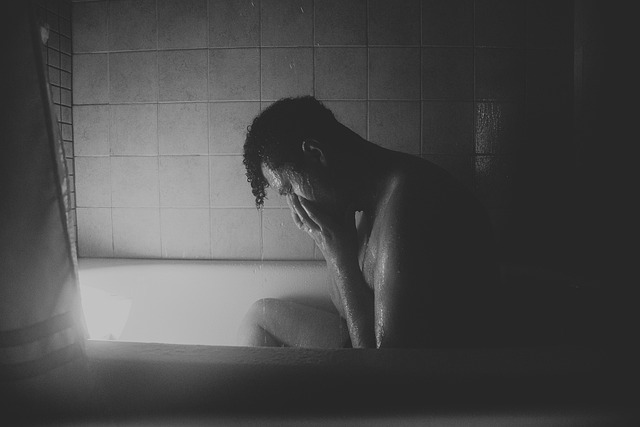Emotional Intelligence (EI) is a powerful tool for personal growth and mental well-being, including in areas like Boulder Sexual Dysfunction Therapy. By cultivating self-awareness, individuals can recognize and manage their emotions, fostering healthier relationships and decision-making. Key components like mindfulness and active listening enhance emotional regulation, communication, and empathy. Boulder Sexual Dysfunction Therapy leverages EI to teach effective emotion management, triggers identification, and inner strength cultivation, empowering clients to make conscious choices instead of impulsive reactions. Active listening, combined with mental wellness journaling, boosts self-awareness, improving overall mental health and navigation through complex emotions.
Emotional intelligence (EQ) is a powerful tool for personal and professional growth, offering a competitive edge in today’s interconnected world. This article guides you through the essential components of building EQ, from self-awareness to active listening. We explore how understanding and managing your emotions can enhance relationships and improve overall well-being. Learn practical strategies inspired by Boulder Sexual Dysfunction Therapy to navigate emotional challenges and foster meaningful connections. Unlock your potential and cultivate a more fulfilling life through the art of emotional intelligence.
- Understanding Emotional Intelligence: Unlocking Its Potential
- The Role of Self-Awareness in Building Emotional Intelligence
- Enhancing Empathy: Connecting with Others on a Deeper Level
- Managing Emotions Effectively: Strategies for Regulation
- Practicing Active Listening: A Key to Powerful Communication
Understanding Emotional Intelligence: Unlocking Its Potential

Understanding Emotional Intelligence is the first step towards unlocking its immense potential. Emotional intelligence (EI) refers to the ability to recognize, understand, and manage one’s own emotions, as well as recognize, understand, and influence the emotions of others. This crucial skillset goes beyond mere empathy; it empowers individuals to navigate complex interpersonal relationships with heightened self-awareness and cultural sensitivity in mental healthcare practice. By cultivating EI, folks can enhance their emotional regulation, leading to improved communication, stronger connections, and better decision-making, even in challenging situations like Boulder sexual dysfunction therapy.
Incorporating self-care practices into one’s routine is integral to building emotional intelligence. This involves recognizing when we’re under stress or experiencing emotional dysregulation and taking proactive steps to restore balance. By prioritizing emotional well-being through techniques like mindfulness, meditation, or engaging in enjoyable activities, individuals can better manage their reactions to life’s stressors. Moreover, cultivating cultural sensitivity in mental healthcare practice ensures that EI is applied with an understanding of diverse perspectives, fostering inclusive environments that meet the unique needs of every client.
The Role of Self-Awareness in Building Emotional Intelligence

Emotional intelligence building starts with a deep understanding of oneself—a cornerstone known as self-awareness. This involves recognizing and acknowledging your emotions, as well as their impact on your thoughts and behaviors. It’s akin to looking into a mirror, but instead of seeing your face, you’re observing the nuances of your inner world. For instance, a person seeking Boulder Sexual Dysfunction Therapy might find that addressing underlying emotional issues significantly enhances their relationships and overall well-being.
Self-awareness acts as a compass, guiding individuals through complex social interactions. It fosters the ability to adapt one’s behavior in response to different situations, promoting empathy towards others. Moreover, this heightened self-perception encourages healthy self-care practices, which are essential for managing stress and maintaining emotional balance. By integrating crisis intervention guidance and social skills training into their routines, individuals can further enhance their emotional intelligence, leading to more fulfilling relationships and personal growth.
Enhancing Empathy: Connecting with Others on a Deeper Level

Empathy is a cornerstone of emotional intelligence and fostering meaningful connections with others. It involves the ability to understand and share another person’s feelings, creating a deeper sense of closeness and understanding. This skill can be enhanced through various means, such as active listening, where individuals fully focus on the speaker’s words and non-verbal cues, ensuring they are truly present in the moment.
In the context of Boulder Sexual Dysfunction Therapy, for instance, empathy plays a pivotal role in building trust between therapists and clients, allowing for open discussions about sensitive topics. Beyond therapy sessions, practicing self-care can also boost empathy by promoting mental wellness. Engaging in activities like community outreach program implementations or even producing a mental wellness podcast series can connect individuals with diverse experiences, fostering a deeper sense of compassion and understanding towards others’ emotions and struggles.
Managing Emotions Effectively: Strategies for Regulation

Managing emotions effectively is a cornerstone of emotional intelligence development, and it’s where Boulder Sexual Dysfunction Therapy can play a pivotal role. It involves recognizing and understanding your own emotional responses and those of others, along with strategies to regulate them healthily. For instance, mindfulness practices, such as meditation or deep breathing exercises, empower individuals to observe their emotions without immediately reacting. This is especially crucial in navigating challenging situations or relationships.
Through therapy sessions, clients can learn to identify triggers, develop coping mechanisms tailored to their unique experiences, and cultivate inner strength. The process fosters a deeper understanding of emotional patterns, enabling individuals to make conscious choices rather than being driven by impulsive reactions. Combining these techniques with Healthcare Provider Cultural Competency Training ensures that people from diverse backgrounds receive supportive care, enhancing mental health awareness and overall well-being.
Practicing Active Listening: A Key to Powerful Communication

In the realm of emotional intelligence building, practicing active listening stands out as a powerful tool for enhancing communication and fostering deeper connections. It involves more than just hearing what someone is saying; it requires full engagement with their words, emotions, and experiences. When we actively listen, we show genuine interest and respect, which can significantly impact our relationships both personally and professionally. This skill is particularly beneficial in navigating complex emotional healing processes and promoting self-esteem improvement, as it helps individuals feel heard, understood, and valued.
For those seeking to enhance their emotional intelligence, incorporating mental wellness journaling exercises into daily routines can serve as a complementary guidance. Taking time to reflect on conversations, emotions, and interactions allows for better understanding of both oneself and others. This introspective practice supports the development of self-awareness, a crucial aspect of emotional intelligence. By combining active listening with journaling, individuals can better navigate their feelings, thoughts, and relationships, ultimately promoting overall mental wellness, especially when coupled with Boulder Sexual Dysfunction Therapy for more nuanced emotional healing.
Emotional intelligence is a powerful tool that can transform both personal and professional relationships. By cultivating self-awareness, empathy, and effective emotional management, individuals can enhance their connections with others. Active listening serves as a bridge to deeper understanding and communication. Implementing these strategies can lead to improved mental health, stronger bonds, and even alleviate challenges like Boulder sexual dysfunction therapy. Investing in emotional intelligence is an investment in one’s overall well-being and success.

